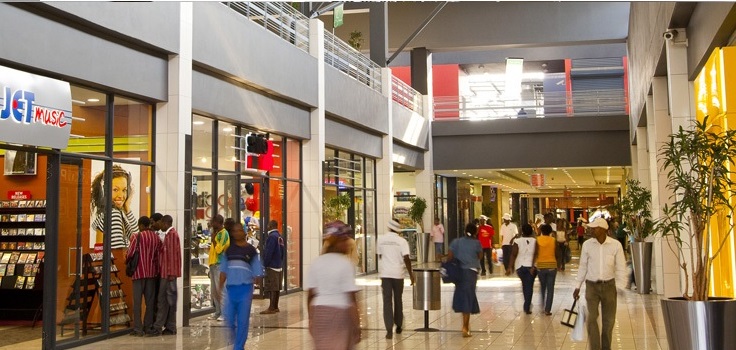Shopping malls across Africa offer a multitude of representation for the masses of African society: the rich’ the poor and different tribes and ethnicities are all able to come together under one roof in a hub of cultural liberation and experimentation.
An article for New Republic magazine by Eve Fairbanks highlights the problems that can arise in these centres of African burgeoning – a problem that has been on show to the whole world over the last week or so – the threat of terrorism as extremist groups use the shopping malls to grab public (or in the case of the Westgate Shopping Centre siege, global) interest.
What these grand, somewhat paradoxical buildings do is show just how African countries are developing. They give an outlet for the middle class to spend what disposable income they have, allowing capitalism and consumerism to flourish, and the African economy to grow. These malls are paradoxical not just because of their seemingly grand design and well maintained interiors compared to their surrounding areas that have little to offer other than crumbling buildings and poor infrastructure; but also because they act as a parallel to the poorly led governments that so often manage the economy irresponsibly as they are too preoccupied with other issues. Aside from this, it is these malls where the money and international interest is, as big, global businesses set up outlets and stores in order to gain access to the ever growing African market. The imagination of African society can be met in here, making them the perfect place to use as a base for extremists to get their message across.
The recent attack in Kenya has raised questions about the future of these malls. What makes these malls so popular is that unlike in the largely fragmented and heavily separated society in which African people live as the rich are kept away from the poor, everyone from all walks of society are able to enter these shopping centres. This allows society to come together in a way that wouldn’t be possible outside of the mall’s walls, providing the opportunity to network and allow for the rise of new ideas and values as new relationships between different parts of the community could be forged. Al-Shabaab’s recent attack could make African malls reassess the unlimited access they give to consumers. It could mean restrictions to who can enter; those of poorer appearance could face restrictions either to their access to the mall altogether, or to certain areas of the building, somewhat creating a reflection of the outside world. This would mean that the same malls that are a symbol of openness, freedom and social emancipation could become nothing more than a mirror of the social struggles already existent in Africa and ultimately prevent the upward mobility of its classes. As shopping malls could become exclusive to those higher up in society it will become harder for the other classes of Africa to be heard by their government, keeping them subjected to many of the poor (but often forced) decisions which do little to improve the continent’s chances of economic growth. With the lower classes of African society being so fragmented, and in many cases too impoverished, to stand for change, the concerns and issues of the society as a whole arguably lie with the middle class, which is why their place in society, and in these malls, is so important.
While Kenya mourns the loss of life its people suffered during the Westgate siege, and questions are asked as to why and how the situation was allowed to unfold into such circumstances, Africa on the whole will suffer as a result. Africa’s development could now be slowed despite making recent massive leaps forward, not only because of the reluctance that will no doubt arise from global companies to invest in such ventures, fearing a repeat of the al-Shabaab attack, but also because of the social impacts that could follow.

